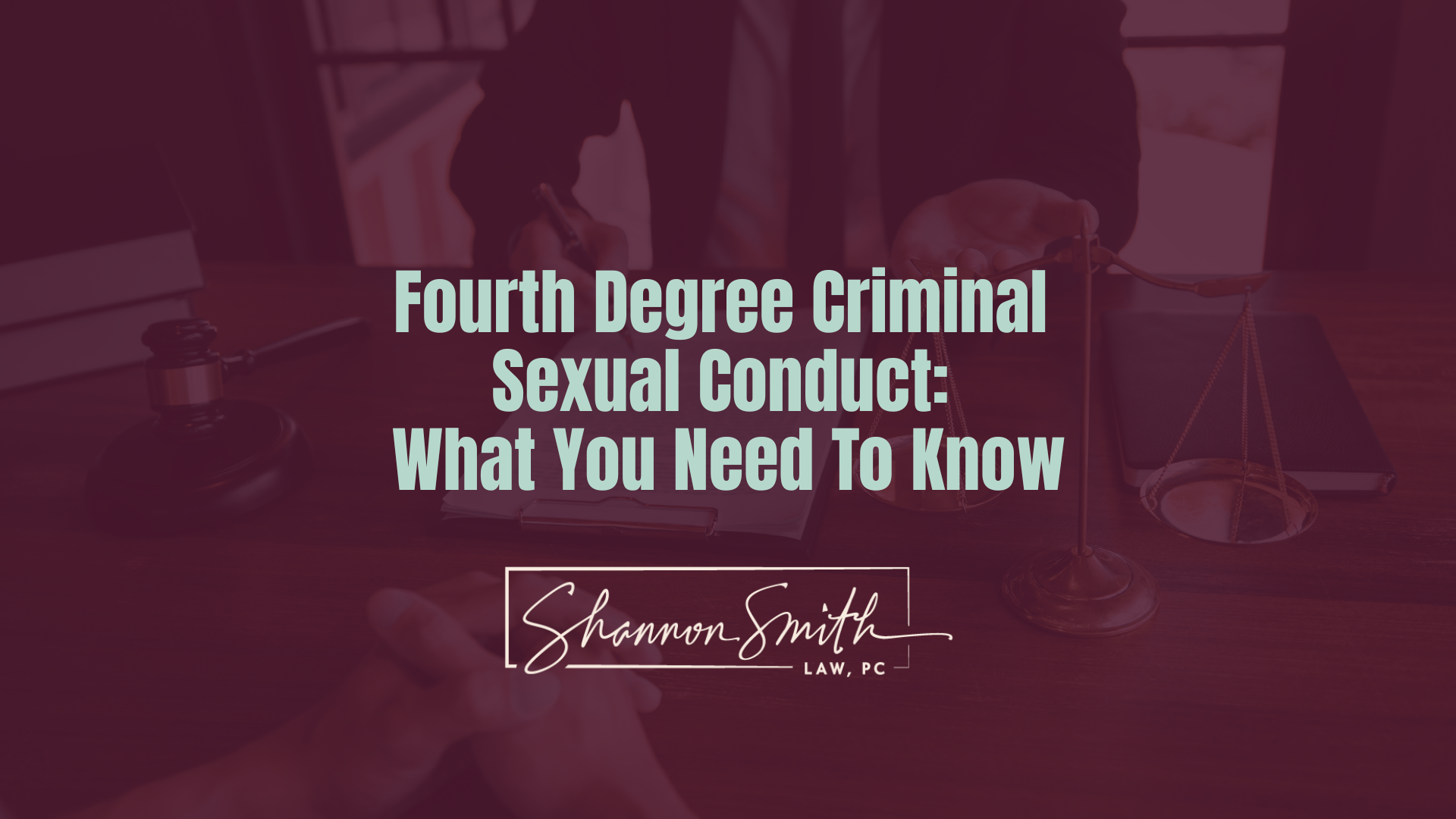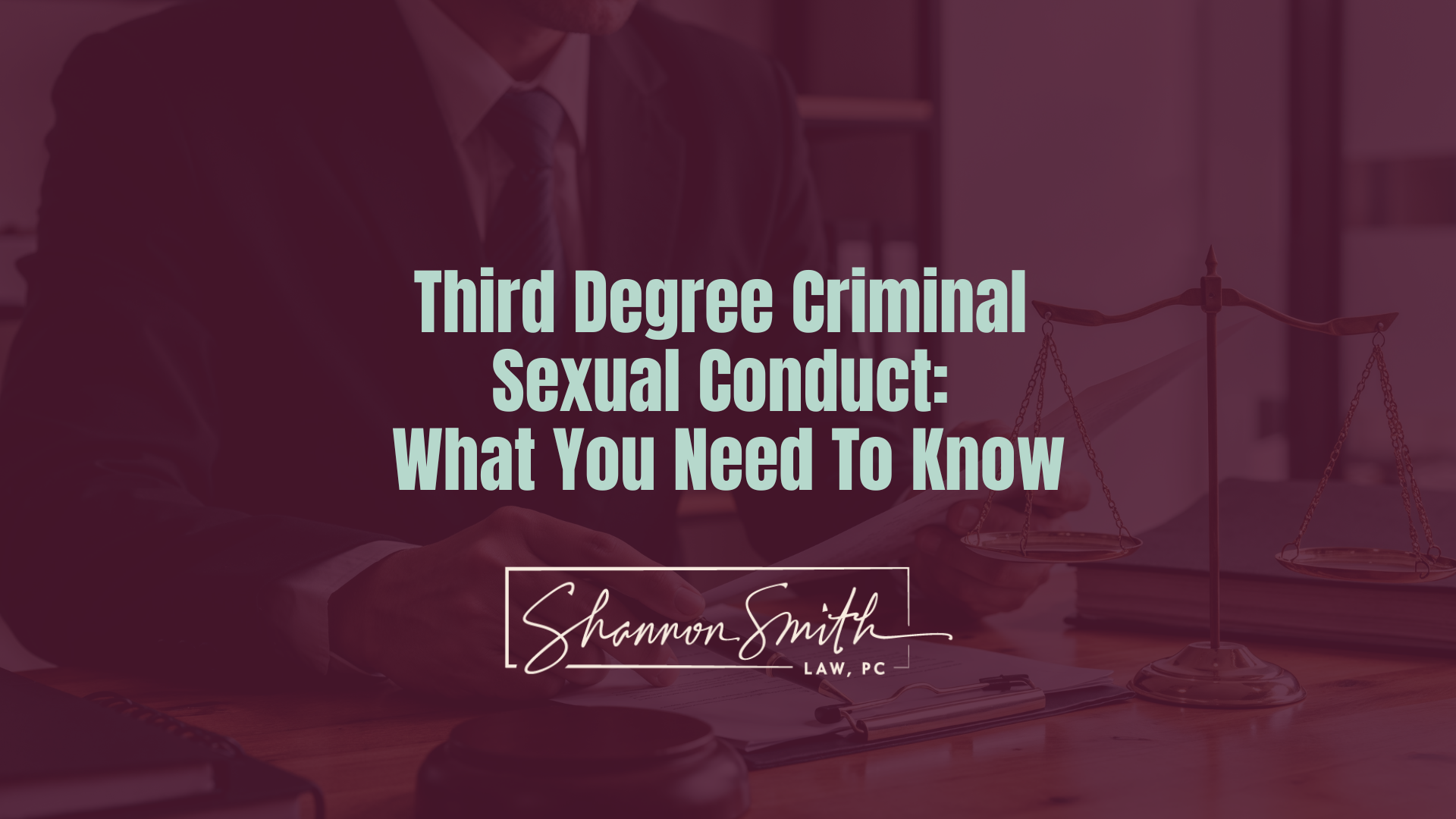Smith Blythe, PC represents clients accused of criminal sexual conduct and child abuse allegations. As such, we have extensive experience assisting our clients through the legal system. This article is designed to provide background information about what you should expect if you or a loved one is charged with a crime.
The Investigation
-
After an alleged crime has been committed, authorities are notified. However, if a crime is allegedly committed in presence of a police officer, or if the officer allegedly has probable cause to believe that a crime has been committed, the police officer may arrest you.
-
The police then conduct an initial investigation, which may include interviewing witnesses and/or taking witness statements, conducting a search, collecting evidence, taking photographs, and drafting police reports, among other things.
-
Often times during an investigation, law enforcement will contact you and ask you to participate in an interview, to make a statement, or to take a polygraph. This can occur prior to, or after formal arrest. You should immediately inform police that you want to consult with an attorney and will not answer any questions, make any statements, or participate in a police polygraph. It is imperative to consult with The Law Offices of Shannon M. Smith, P.C. before participating in an interview with law enforcement, making any statements to police, or taking a polygraph test. Shannon M. Smith can direct and assist you in navigating a police investigation to help protect your rights.
Warrants
-
Following an investigation, law enforcement will submit a warrant request with a report to the local prosecutor’s office requesting that criminal charges be brought against an individual. The prosecutor’s office will then review the request and information submitted by law enforcement and determine whether an individual should be criminally charged and, if so, what the appropriate charge(s) should be. In the numerous cases that Smith Blythe, PC has been involved in, she has been successful in helping clients avoid criminal charges.
-
However, if the local prosecutor’s office reasonably believes that there is probable cause to believe that a crime has been committed, the prosecutor’s office will issue charges and an arrest warrant (if an arrest has not already been made). If a warrant is issued, the police can come to you at any time to arrest you. Our office has often been able to work with law enforcement and voluntarily “walk in” clients on their warrants, so there would be less of an opportunity for police to show up at your home or place of employment to arrest you.
Court Proceedings
-
After you are formally arrested, you will appear before a judge for your arraignment. An arraignment is your first court appearance, and may be held by video broadcast in some courts. The purpose of an arraignment is to inform the accused of what criminal charges are being brought against him or her and what the maximum penalty for the charge would be. At arraignment, bail/bond will be addressed and the judge will set the amount (if any) for the bail/bond and any terms or conditions of the bail/bond. Prosecutors take sexual allegations very seriously and often ask that bail/bond be set at a very high amount, resulting in the accused being unable to furnish bail/bond. Having an attorney like Shannon M. Smith appear with you at an arraignment can help ensure that you stay out of jail and that the bail/bond amount and any terms or conditions of the bail/bond are reasonable.
-
After arraignment, a preliminary examination will be scheduled. Sometimes, a “pre-exam” hearing will also be scheduled prior to the actual preliminary examination. A preliminary examination is a “probable cause” hearing, where the court must determine if there is probable cause to believe that the alleged crimes were committed and that the defendant appearing before the court has in fact committed them. The burden of proof at a preliminary examination is much lower than the burden of proof at trial. If the judge determines that probable cause exists, the defendant is “bound over” to the Circuit Court for trial. At the preliminary examination, the judge may also decide that there is not probable cause to bind the defendant over on the charges, in which case the judge can dismiss the charges against the accused. A judge may also reduce the charges, or bind the case over to Circuit Court on different charges if established at the preliminary examination.
-
After a case is bound over to Circuit Court, an arraignment on the information (“AOI”) is scheduled. The “Felony Information” is the state’s official charging document and outlines the charges, statutes, and maximum penalties. At AOI, a defendant can ask that the court read the Information on the record, or can waive the formal reading of the Information. A defendant can also enter a plea of not guilty, guilty, or stand mute to the charges. If a defendant stands mute to the charges, the court will enter a plea of not guilty for the defendant.
-
After the AOI, the court will schedule Pre-Trial Hearings/Status Conferences. The purpose of these hearings is to determine if the case will proceed to trial or if the parties will reach a plea agreement. During this time, the judge will address any pre-trial motions or evidentiary issues as well. It is important to have an attorney, like Shannon M. Smith, to be present at the pre-trial level to ensure the best possible plea agreement for you, or to decide to proceed to trial.
Pleas and Trials
-
If there is no plea agreement, the case proceeds to trial. A defendant has a constitutional right to a jury trial, but may also request a trial before the judge only (a “bench” trial), if the prosecutor agrees. The prosecution carries the burden of proof in a trial and the prosecutor must prove the guilt of the accused beyond a reasonable doubt. Having a skilled trial attorney at your side can be the difference between a winning defense and a guilty verdict. Shannon M. Smith is a proven trial attorney with significant skills and experience who will aggressively defend your rights.
-
If there is a conviction after a guilty plea is entered or trial conclusion, a sentencing hearing will be held and the judge will impose a sentence for punishment of you. In Michigan, some sex crimes carry mandatory minimum prison sentences and/or mandatory sex offender registration. The lawyers in our office understand and are experienced with all the various consequences of a conviction of a crime of criminal sexual conduct. We can properly advise you and prepare you for sentencing, and in some instances, get the sentence lowered.




